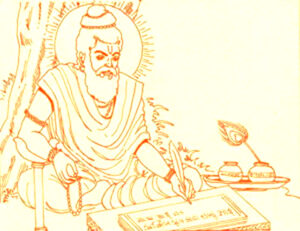
Success Is A Mindset.
The most prominent observations about how many people live in the East versus here in the West concerns differences in mindset. In the West, a majority of society seeks pleasure and comfort from external factors. Physically, we are very comfortable. We receive instant gratification through various means; online shopping, using substances, scrolling through social media, the list goes on. Conversely, the Eastern mindset embraces building inner emotional resilience (mental comfort) rather than reaching for something outside ourselves to fulfill our desires.
The Secret of Getting Ahead Is Getting Started.
The secret to fulfilling our desires may not be what most people expect. In fact, the secret to achieving anything is not filled with glamour or fluff. There is no quick fix or magic pill for success. Instead, it involves a beginning, then staying, and finally returning right back to the practice of beginning should you wander away from staying. The yoga tradition provides a road map leading to the promise of inner satisfaction; however, this road is a lengthy one and requires willful effort.
The very first Yoga Sutra of Patanjali reveals the secret to fulfilling a desire, creating a new habit, developing a new skill, or reaching success is to simply commit to the beginning. You can choose to take the phrase “And now we begin” with you before starting any practice to remind you of the magical, unknown, sometimes challenging journey that lies before you. Always remember it is a practice. But with practice comes progress. And with progress comes incredible feats.
What are the Yoga Sutras?

The Yoga Sutra is a text written approximately 2,000 years ago. It consists of a codified system- comprised of various rituals, practices, and disciplines. Whoever is responsible for the Yoga Sutra is referred to as Patanjali. It has been speculated that Patanjali may have actually been a group of people rather than one individual. No one really knows, which just further mystifies this ancient text.
The Yoga Sutra is a systematic approach that applies to every human. The knowledge found within this text describes how to respond to the world, exist in the body, manage energy, and understand the inner workings of the mind. Patanjali offers wisdom to help us realize who we really are, our capabilities as humans, our uniqueness, and how to live more peacefully. By developing morals and understanding the human condition, we can begin to live a more connected and meaningful life. These are universal rules and, when understood and applied correctly, actually work.
Meaning of Sutra
The word ‘Sutra” means “thread.” The text is called the Yoga Sutra because it threads together all the various teachings of yoga into a single body of knowledge. The challenge with the Yoga Sutras is that most of it is in code. Very little of it is self-explanatory. A qualified teacher’s guidance can help clarify the meaning of the text while also teaching how this clarity can be applied to your life.
My knowledge of the Yoga Sutras is ever-growing. I have attempted to understand this text while acquiring my 500 yoga teaching training hours, during a week-long intensive with Tim Feldmann, and through in-depth online courses. My attempts to understand this text have also been supplemented by reading various books geared toward an increased understanding of these “threads.” My interpretations may differ from someone else’s based on my own knowledge gained through experience, self-study, and application. Keeping that in mind, I would like to express what the very first Yoga Sutra means to me.
Yoga Sutra 1:1: “Now Yoga Begins.”

The opening sutra introduces what these teachings will be about. There are pages and pages of commentary on this opening sutra alone. Like yoga’s very definition, this sutra may vary in meaning from one person to the next. For me, this opening sutra stands for the very first step in achieving anything, whether it be on your yoga mat or out in the world.
And now we begin…
Achievement can only be obtained by first deciding to begin. Sometimes the discomfort of suffering must precede a new beginning. The experience of pain can serve as a useful message that it is time to make a change. Beginning something unknown is not always comfortable. But it is a necessary step toward living the life I intend to live. The birth of this blog was made possible by typing the very first word. My yoga practice first began by making the decision to step on my mat. These things were once, and still can be uncomfortable. Even more so, these undertakings now bring great pleasure to my life. Beginning means committing to discomfort to reveal hidden potentiality within me.
When starting a new undertaking, I must agree that it is plausible for someone like me to accomplish such a thing. I must begin to envision a version of myself that does not yet exist. It means redirecting my focus during moments of doubt, boredom, self-criticism, or fear. It means saying “no” to short term hits of dopamine through means of scrolling, indulgent drinking, or looking to something or someone outside of myself to make me feel better.
Beginning right now means putting aside perfectionistic tendencies of getting “the thing” just right. And instead, just getting the task done so it can be sent out into the world. Now I begin no matter what my current level of motivation- despite that unknowingness of what lies ahead. To start means to start right now at this very moment. And when I begin to wander off course, the only place to return to is right now.
The Practice of Beginning
Returning to my yoga mat is symbolic of how I approach life. It is the process of continuously deciding to get on my mat THEN stay on my mat while remembering that now is the time to practice. Whether that be a new habit, the art of writing, developing a new skill, consuming nourishing food, or anything else that brings me closer toward the person I envision myself as becoming. I can always return to my practice if I lose focus. Often times, I do, in fact, lose focus. But there are lessons to be learned in those moments that can propel me forward. And the only way to move forward is to return to this moment right now and choose to begin again.
What do you wish to begin?
Yoga is a life-long practice. The yoga tradition provides a method for growth, change, and learning to occur. This process encompasses commitment, showing up courageously, belief you can handle any emotion, and a willingness to use failure as a tool to move forward. Luckily, these qualities are already ones in which we possess and can further develop. The Yoga Sutras are one source of guidance. On or off your mat, you can courageously commit to the never-ending process of evolving into who you wish to become.
Contemplation Points:
- What does this Yoga Sutra mean to you?
- How can you apply this meaning to your own life?
- What is it that you want to begin?
- Now, go do that thing. Right now.







